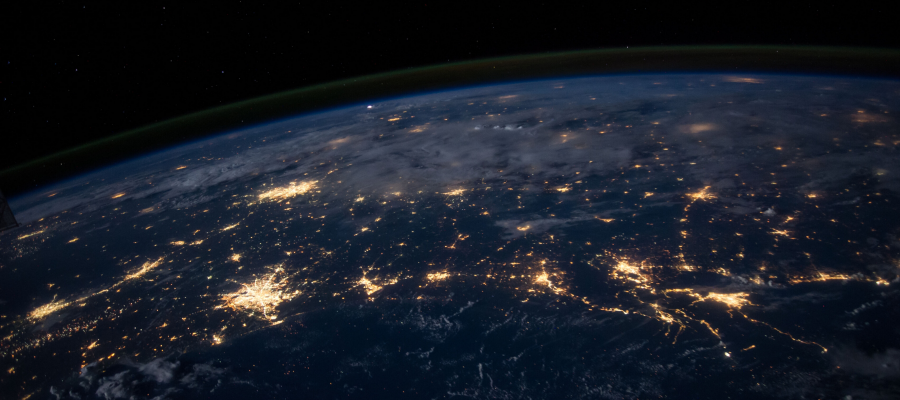The Environment and Global Justice
Sep 28, 2004Our current way of life is unsustainable. Depletion of the ozone layer, the dwindling of the rain forest, the loss of animal habi...

American politicians love to say that America is the greatest country in the world. Of course, it’s never clear exactly how they are measuring greatness. They often seem to be talking about our founding principles. Now those do sound great on paper, even if we have seldom fully lived up to them. But I don't think actual greatness -- as opposed to potential greatness -- can be a matter of aspirational principles, especialy if those principles are seldom lived up to. So they must have something else in mind if they mean actual greatness, rather than just potential greatness.
Sometimes people who talk about the greatness of America seem to have in mind the size of our economy or the power of our military. Often, such talk includes a bow to the innovativeness of our entrepreneurial class. The claim is bolstered by appeal to the flood of immigrants who have come to our shores at various times in our history—though the recurring and widespread resistance to each successive wave of immigration is seldom noted. Seldom noted too are things like our crumbling infrastructure, the widening gap between rich and poor, our hugely expensive and destructive prison-industrial complex, the violence that plagues us, failing schools, and on and on.
Clearly there is much that is good about America. But there is also much that is less good. Of course, the same could be said for every country on Earth. So how are we to measure the overall greatness of one country in comparison to other countries? It occurred to me recently that one way we might do it is to run a thought experiment—something we philosophers are good at. Suppose we were to ask for each country on Earth how many people would willingly choose to live in it, given complete freedom of choice, but under a modified version of what the philosopher John Rawls calls the veil of ignorance.
Here’s how the thought experiment runs. Imagine that you are going to start your life from scratch as of January 1, 2018. You are completely free to choose the country you are born into. But there’s a catch. You do not know what class, gender, ethnicity/race, or religion you will be. Nor do you know what the educational attainment of your parents will be. You have no idea whether you will be a member of a privileged elite or an oppressed minority within the relevant country. You are, however, free to rely on a complete information about the demographics, political system, economy, and so on, of the various countries in the world. You are free to take account of the current world situation, including how your chosen country will be affected by things like global warming, human migration patterns, war, famine, etc.
I reiterate that about yourself, though, you know only that you are going to be born into this country, in the current world situation, on January 1, 2018, to parents of unknown race, wealth, education, etc. Which country would you choose to be the country of your native birth? And why?
I’ll make a prediction and a claim. The prediction is that almost no would choose to be born into the USA under this modified veil of ignorance. And the claim is that if that’s right, then perhaps America has very little current claim to being “the greatest country on Earth," despite what our politicians would like us to believe.
Comments (1)
Harold G. Neuman
Wednesday, November 15, 2017 -- 12:11 PM
Ken:Ken:
Your thought experiment might be difficult for anyone who has never lived somewhere other than the United States. Over the course of a life time, and particularly during our formative years from say, age twelve through eighteen, we are literally hammered with every form of God Bless America that our elders can think of. At my now-advanced age, I am continuously dumbfounded by the ongoing audacity of these efforts. And, I feel badly for young people (most of them) who are fearful of thinking for themselves because of it. I was lucky enough to live somewhere else for about seven years during the 1970s. It helps one gain perspective. So, having said that, I would choose Canada. It is like the United States, in that freedom is cherished. It is different in that its' collective ego has not undermined the virtues that Americans once held dear. And, Canadians don't have to advertise the greatness of their country, nor do they browbeat their children with it. Sure, if I could live there again, I would. But, it's a bit late for that now. Thanks for asking...